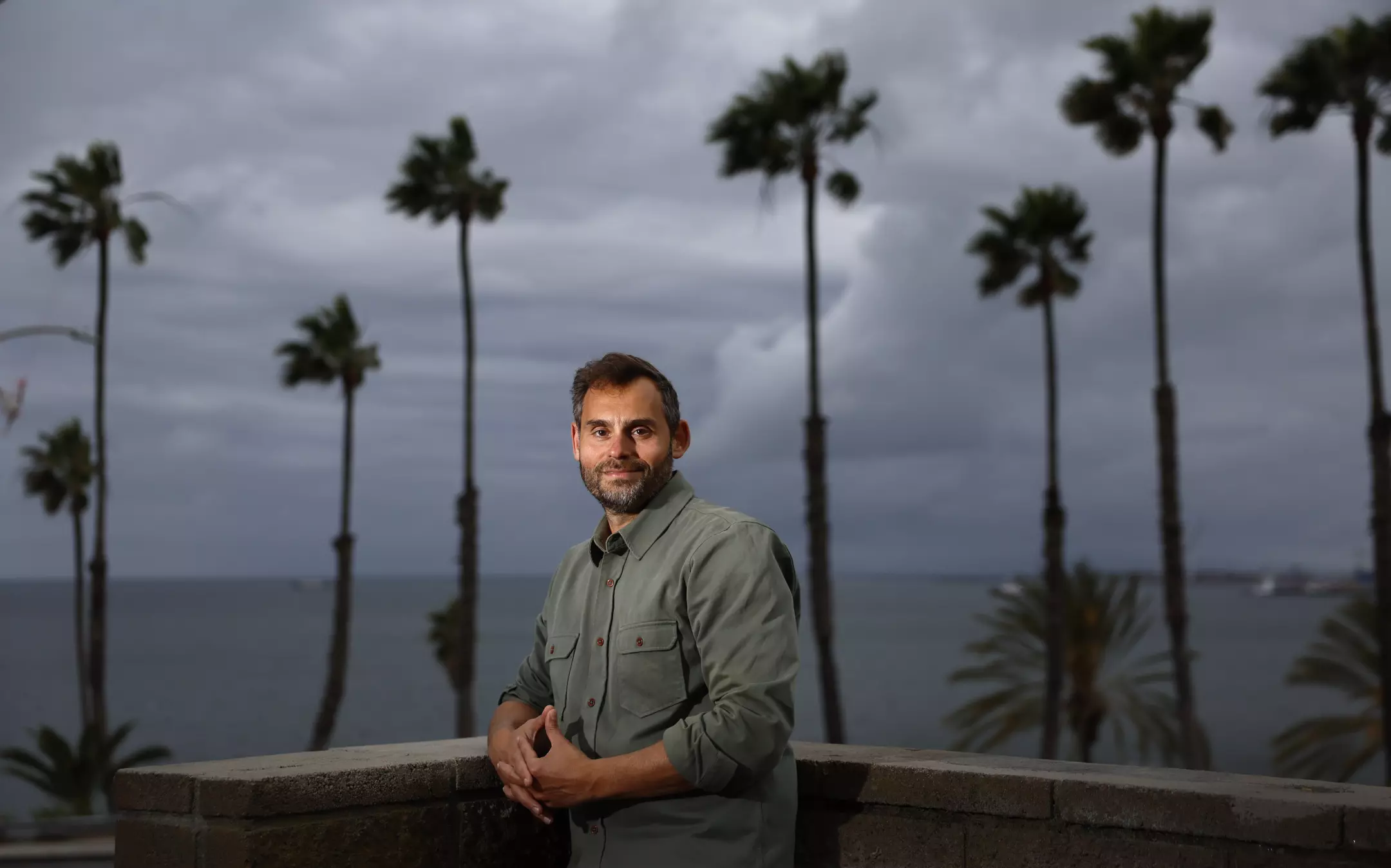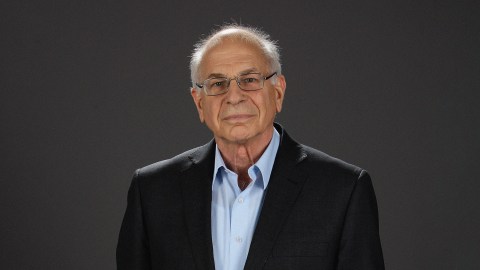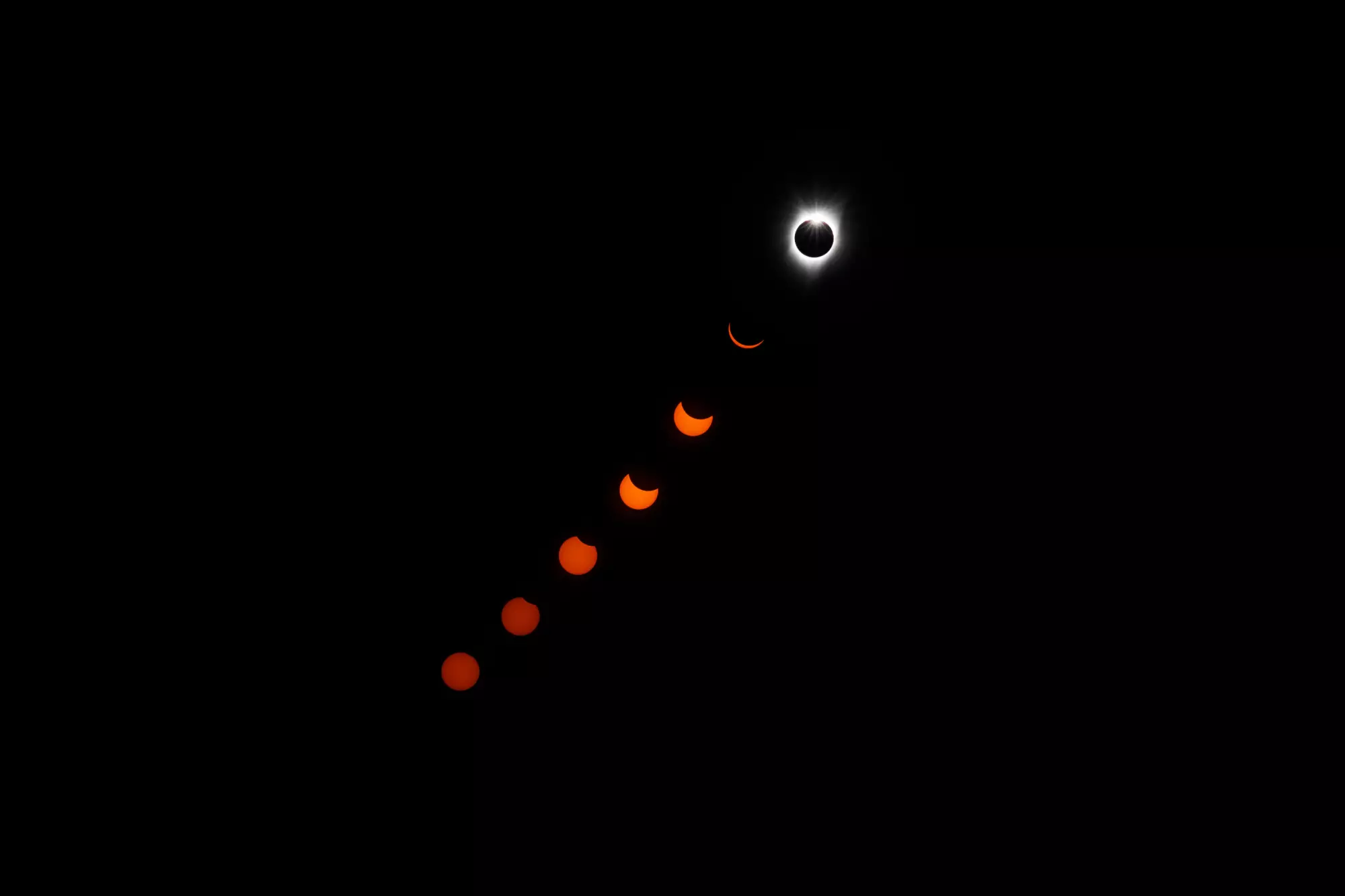Three items today.
- Addressing a piece that claims that the awe of the solar eclipse, tomorrow, will somehow unite humanity (I think not; it hasn’t before);
- Another appreciation of Daniel Kahneman, who explained how humans think, and established the idea of “cognitive biases”;
- And looking back to a song by Split Enz, the predecessor group of Crowded House and soloist Neil Finn.
*
Here’s an article that wonders if tomorrow’s solar eclipse will somehow be a united force among all humanity. My initial reaction is: of course not. Has it happened after previous eclipses? No. At the same time, the awe is there for people opening to experience it.
Caption: “In-camera multiple exposure of the solar eclipse as seen in Salem, Ore., on Aug. 21, 2017. (Marcus Yam/Los Angeles Times)”
LA Times, 7 Apr 2024: These scientists think an ‘awe’-some eclipse could help unite Americans in troubled times
The piece opens:
To hear Herodotus tell it, a total solar eclipse in 585 BC ended a five-year war between ancient kingdoms in present-day Turkey.
Could another total eclipse on Monday bring an end to the partisan wars in America?
The idea may sound far-fetched — until you talk with Paul Piff. The UC Irvine professor of psychology and social behavior has spent the better part of two decades researching what triggers us to set our personal needs aside and shift our focus to the greater good.
One of them, he and other scholars have found, is awe: the feeling you get when you contemplate something that is so vast and so mysterious that it forces you to reevaluate your understanding of the world.
And few things generate awe like watching the moon blot out the sun and plunge a sunny day into erie darkness.
“People talk about eclipses as one of the coolest or most mind-blowing things they’ve ever seen,” Piff said.
Here’s Paul Piff:

Caption: “Paul Piff, a psychology professor at UC Irvine who studies awe, poses in Long Beach last week. He used the 2017 total solar eclipse to conduct research on what makes people feel awe and how it changes their emotional state. He’s planning another experiment based on the Monday eclipse. (Allen J. Schaben/Los Angeles Times)”
More from the piece:
Awe “gives you a sense of feeling connected to something bigger than yourself, like your community, your society or your world,” he said. “Getting people to feel that way is totally vital to our species’ survival and longevity.”
Yes, this is in part the origin of religion — the realization by primitive humans, having lived with tribal morality for thousands or millions of years, that there existed a real world outside of their tribal existence. This was, much later, partly the motivation for science fiction.
Lots of good photos in this piece. Here’s another, from the 2017 eclipse.

Caption: ” On Aug. 18, 2017, Poureal Long, a fourth-grader at Clardy Elementary School in Kansas City, Mo., practices the proper use of eclipse glasses in anticipation of an eclipse Aug. 21. (Charlie Riedel / Associated Press)”
\\\
One more appreciation of a scientist who clarified how we think.

Big Think, Jonny Thomson, 4 Apr 2024: Daniel Kahneman’s transformative insights on rationality and happiness, subtitled “Kahneman was a world-changing psychologist — even with his lesser known ideas on life satisfaction.”
To be clear: Kahneman seems to be the one who demolished the idea in traditional economics that people think rationally about their choices in life. They don’t: they react emotionally, and use reason to justify those emotions. Haidt and others have expanded on his ideas. But of course he did much more.
Key Takeaways
• Daniel Kahneman transformed the social sciences and established “cognitive biases” as a mainstream concept. • Kahneman is often misunderstood, and his work is more subtle than people might assume. He does not believe humans are irrational. • Less appreciated is Kahneman’s work on happiness. Here, we find wisdom that might transform our lives even more than his work on heuristics.
From the article:
Kahneman’s book Thinking, Fast and Slow has sold more than 10 million copies worldwide. It’s come to define pop psychology as a genre, and you probably can’t walk a mile without finding someone who’s read it or at least knows the gist of it. The book is a modern take on the “dual process theory” of human thought, which states that the human mind is defined by two separate but often related modes of cognition.
The first is rationality. Kahneman refers to this as “System 2” thinking, which we use far less frequently than “System 1.” System 1 thinking uses biases, heuristics (mental shortcuts), and intuitions to make decisions quickly and efficiently. It makes the kinds of snap decisions that help you navigate a fast-moving world, such as first impressions, gut feelings, and unconscious thoughts.
When System 1 goes unchecked, we’re liable to develop cognitive biases, an idea introduced by Kahneman and cognitive psychologist Amos Tversky. When you take shortcuts, you sometimes miss things. When you simplify, you reduce. A bias is an example when System 1 thinking prioritizes efficiency over accuracy. These days, you can’t go long without hearing about biases. We have the confirmation bias of social media echo chambers. The representative bias in racist criminal profiling. The anchoring bias of used-car salesmen. We are all now much more aware of how small a pocket rationality occupies in our broader cognition. We are not so much Homo sapiens, but rather Homo intuitivus — “intuitive man.”
I’ve read his book Thinking, Fast and Slow, and have detailed notes I will eventually summarize here. And currently I’m reading Joshua Greene’s Moral Tribes, which discusses the idea of “dual process theory.” (Did Kahneman discuss that? I’ll have to go through my notes. Maybe.)
\\\
For two months now I’ve been listening the albums by Crowded House and Neil Finn, and yesterday I remembered there was a previous group: Split Enz. They did more albums, (Wikipedia) in the 1970s, than Crowded House did, beginning in the ’80s. I have only The Best of Split Enz, the US version, in which (having listened to it four times), the best three songs are front-loaded to the beginning. And there’s the first, with a very young Neil Finn.






